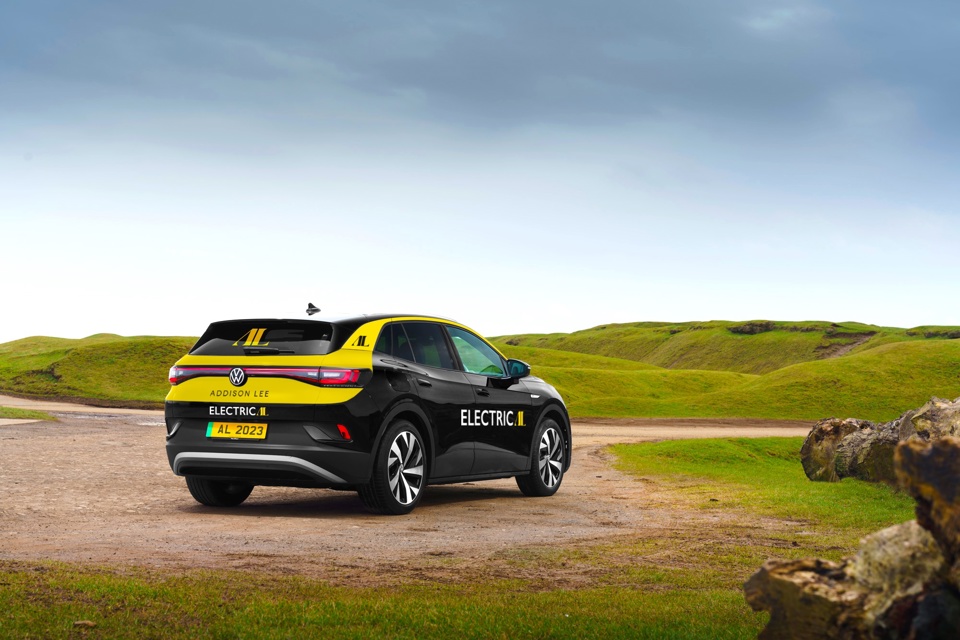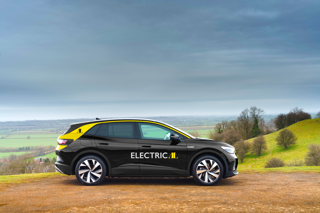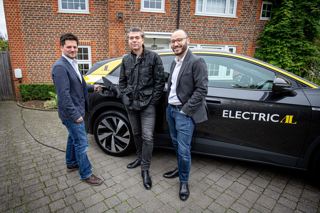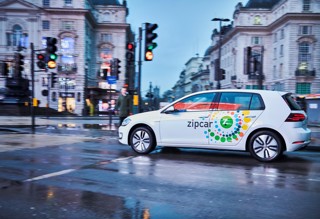Data from the introduction of the first Addison Lee electric vehicles (EVs) onto its fleet has shown key issues with the London charging infrastructure.
Since the first Volkswagen ID4s were introduced on to the fleet last month – part of its transition to a fully-electric fleet by 2023 – Addison Lee says its data has revealed “insufficiency, inefficiency, and inconsistency” in the capital’s public charging network.
According to a survey conducted among the first drivers of the Addison Lee EVs, 93% have not found rapid charging through the public network to be an easy process.
Drivers revealed that rapid chargers are often found to be broken or damaged (57%), while over a third (37%) said that it can tend to take them over 30 minutes to locate a rapid charger.
Without the right support, Addison Lee says that these issues pose a challenge to the PHV and taxi industry’s adoption of electric, and their ability to positively contribute to the Mayor of London’s 2030 net zero carbon target.
It is offering to share its data and learnings from its transition to help tackle these varying infrastructure challenges. The firm is also supporting the drivers it works with through home charging, partnering with JustPark and Octopus Energy earlier in the year, to provide a solution to drivers who don’t have access to on-street, viable charging.
The electrification of its full 4,000 strong fleet by 2023 will remove an estimated 20,000 tonnes of CO2 from London’s roads each year.
While the shift takes place, Addison Lee says it will continue to offset journeys that take place in its non-electric fleet.
Addison Lee’s CEO, Liam Griffin, said: “COP26 was a clear reminder of the responsibility every business has to reduce its carbon output and tackle the climate crisis.
“By pledging to electrify by 2023 we are playing our part in reducing carbon emissions and improving air quality in the capital. But our commitment is not enough.
“To meet London’s 2030 net zero carbon target, every fleet operating in London needs to transition to electric as quickly as possible.
“To achieve this requires urgent investment in London’s public charging network.
“Our experience of our EV rollout so far has highlighted the huge infrastructure challenge we face as a city. Unless we can work together to fix this, we will never reduce carbon emissions to an acceptable level in the capital.”
Transport for London (TfL) has estimated that London will need almost 4,000 rapid EV charging points by 2030 but currently just over 600 are in place, which are not available to all EV owners.
Previous independent research shows that if London’s private hire vehicle and taxi fleets shift to full EV then approximately 8,500 rapid chargers are required in the capital.
Similarly, research recently published by the Society of Motoring Manufacturers and Traders (SMMT) demonstrated that availability of public charging points is far behind the sale of EVs, with only one point installed for every 52 EVs sold.
Addison Lee's research comes in the wake of Zipcar calling for an extra 3,500 rapid electric vehicle (EV) chargers in London by 2025 to meet its EV Infrastructure Delivery Plan.
The car-sharing club is calling for more rapid chargers as it plans to expand it fleet of EVs to more than 400 cars and says 4,000 rapid chargers are required across the capital.
Based on data from the first EVs included in its fleet, Addison Lee cites that the lack of infrastructure in the capital is creating challenges for industry-wide rollout of electric vehicles.
It warns that an absence of sufficient, working charging points (insufficiency), a failure to maximise the utilisation of each charging point (inefficiency), and the uneven location spread in the public charging network (inconsistency), risk compromising the ability of other fleets in the capital to make the transition to EVs.
The firm calls for the public and private sector to come together to urgently address these issues, focusing on three critical areas:
- Swiftly ramping up the number of rapid public charging points in London to 8,500, so electric fleets can operate effectively and without interruption.
- Removing inefficiency from the network by ensuring all charging points are utilised to full capacity. In particular, where dedicated and single manufacturer chargers exist TfL, and private operators could release data and information to allow other vehicles to access them when they are not in use.
- Tackling inconsistencies in infrastructure provision across London by ensuring that there are enough charging points in every London borough.
To play its part in addressing these challenges, Addison Lee says it will share data and learnings from its own EV rollout across the capital, including insight into the specific infrastructure challenges it faces.
In providing this information, the firm hopes to help transport planners build a charging infrastructure that is fit for the future and can support electrification across the private hire and taxi industry, and beyond.
























Login to comment
Comments
No comments have been made yet.